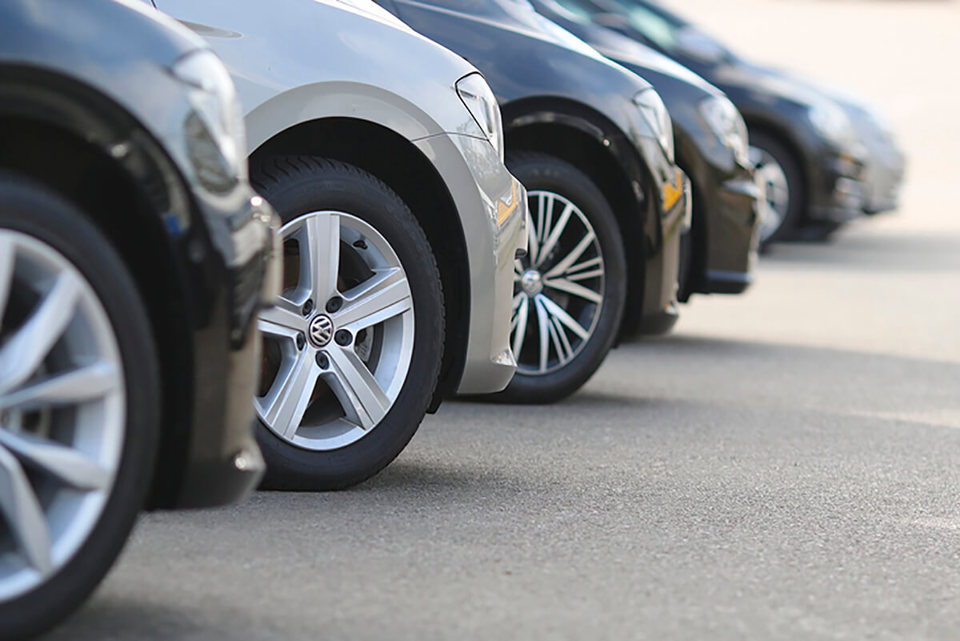The brake has been applied to the decline in the number of company cars on Britain’s roads, according to latest statistics compiled by HM Revenue and Customs (HMRC).
The newly-published provisional figures for the 2011/12 tax year reveal that benefit-in-kind tax was paid on a total of 940,000 company cars.
While that total represents a 10,000 car decline on 2010/11 (Fleet News, August 16, 2012), it is the smallest annual reduction since 2006/7 when the number of company cars on the roads increased to 1.16 million from 1.14m in 2005/6.
Nevertheless, the latest figure is a long way off the company car peak recorded in 1999/2000 when 1.61m people paid BIK tax on their vehicles, according to HMRC.
Although it is unlikely that the number of company cars on Britain’s roads will again reach 1.61m, the fact that the rate of decline has been arrested suggests a growing demand for vehicles funded via increasingly popular salary sacrifice schemes.
Fuel perk decline
The data also reveals that the number of people paying BIK tax on fuel used privately has also declined further.
The Government has increased year-on-year the fuel scale charge on which tax is paid and that has driven the reduction, although in 2011/12 240,000 people continued to be in receipt of the ‘perk’ (2010/11: 250,000).
Tax experts have said for many years that the vast majority of employees would be financially better off paying for fuel used privately out of their own pocket.
Meanwhile, there was a sharp decline in the number of employees paying tax on mileage allowances in excess of the tax-free Approved Mileage Allowance Payment (AMAP) rate.
HMRC apportioned the reduction to 380,000 employees in 2011/12 from 510,000 in 2010/11 to that year’s increase in AMAP rates from 40p to 45p per mile for the first 10,000 business miles.
The number of employees paying BIK tax on vans and company fuel used privately in vans and the figures
is unchanged, according to the figures.
HMRC says that since 2008/9, the number of people using a company van privately and thus paying tax has been static at 60,000 with 40,000 people paying tax on fuel used privately – a figure unchanged since 2007/8.
Tax take increase
Although the number of company cars continues to decline, the amount of tax collected by the Government from employees increased to £1.19bn – £20m more than in 2010/11 and £40m more than in 2009/10.
The tax liability data also reveals that in 2011/12 the Government collected £260m in car fuel benefit tax; a figure unchanged for the past three financial years (2008/9 £300m was collected), which shows the impact of the annual scale charge increase despite 30,000 fewer recipients of the ‘perk’.
It also collected £30m in tax on mileage allowances, down from £50m for seven successive years, and £40m in van BIK tax and £5m in tax on van fuel used privately – both sums unchanged in recent years.
Additionally, the data reveals that the Government saw revenue from National Insurance contributions from businesses paid on the company car benefit reduce to £460m in 2011/12 (2010/11: £470m), which continues a year-on-year downward trend.
HM Treasury’s National Insurance take from car fuel benefit was £100m in 2011/12 and National Insurance liability on vans was unchanged at £20m.
The statistics reveal that in terms of number of recipients, private medical and dental insurance is the most popular taxable benefit (62%), followed by company cars (26%) and excess mileage allowances (10%).
Downward trends
Meanwhile, the HMRC’s latest BIK statistics book reveals that in 2010/11, 81% of company car drivers were at the wheel of vehicles emitting less than 165g/km of CO2 and about 77% of company cars were diesel. In that year, most company cars (200,000 or 21%) were in the 145-154g/km tax bracket.
HMRC says that average emissions of company cars reduced between 2009/10 and 2010/11, with the number of recipients with cars emitting under 145g/km increasing by 26% and the number with cars emitting more than 145g/km decreasing 18%.
That emission reduction trend can be expected to continue when HMRC publishes its next set of BIK statistics in 2014 as emissions-based company car tax is one of the drivers behind manufacturers producing, and fleets operating, low emission models.

















Login to comment
Comments
No comments have been made yet.